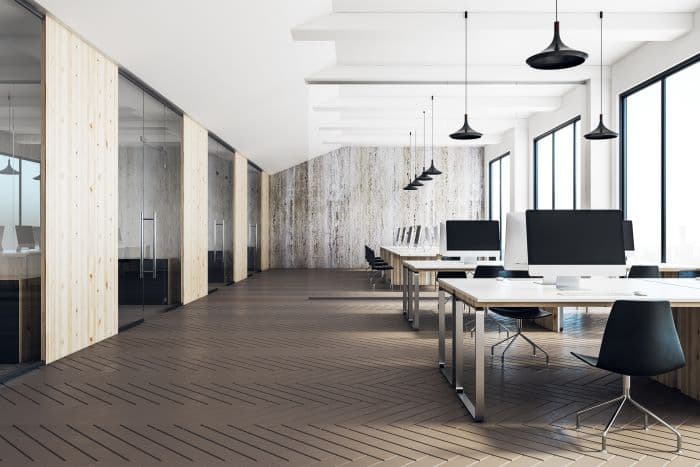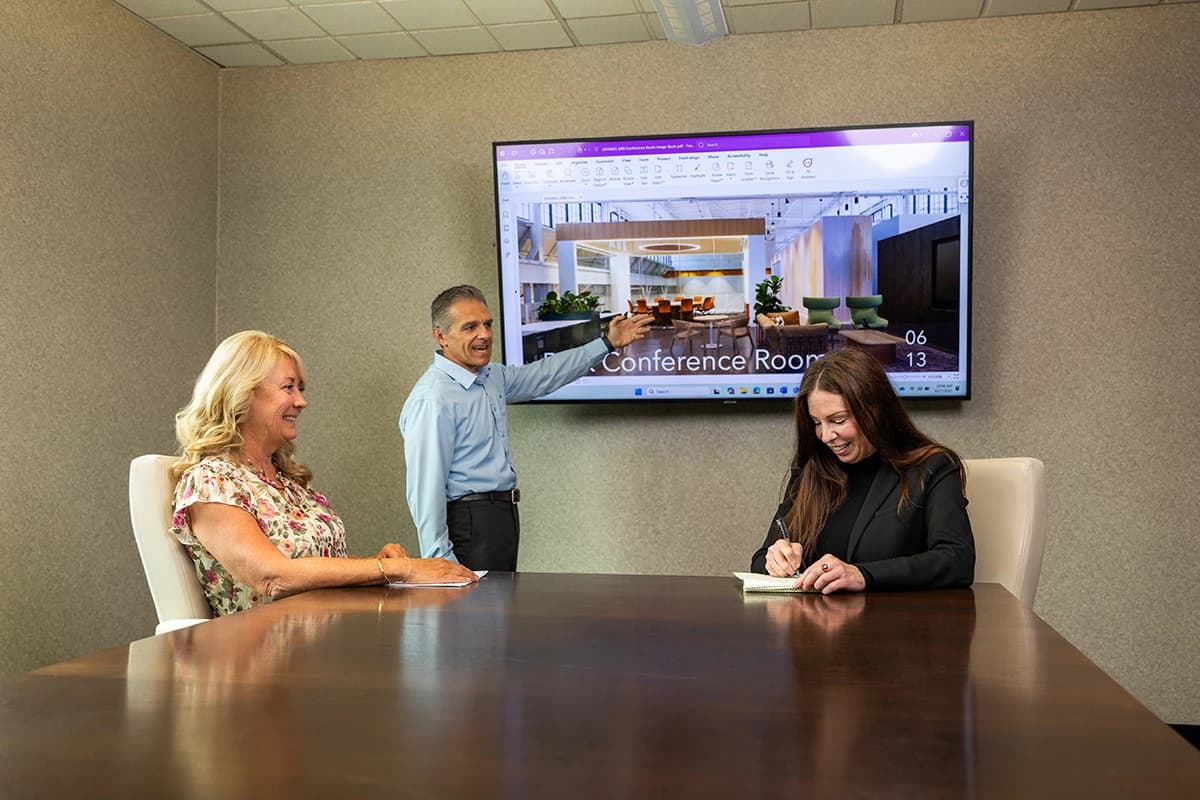
The Pros and Cons of Renting Office Space
Written on May 26th, 2023 | Updated on June 26th, 2025
Deciding whether to rent your new office space or purchase it outright is one of the biggest questions any business owner will need to answer. Leasing a business premises comes with both benefits and drawbacks and understanding both lists will go a long way toward helping you make an informed decision.
Here’s a collection of pros and cons you can expect when renting office space.
Pros of Renting Office Space
First, let’s dive into the benefits you’ll get from renting instead of purchasing:
Prime Property Location
“Location, location, location” is an oft-used saying for a reason. Leasing a prime property will enable you to take full advantage of your area and set yourself up for success. Since leasing a property is more flexible than purchasing one, you will also have the freedom to explore other leasing opportunities and different locations as your business evolves and strategies change.
More Working Capital
Having extra money at the beginning of your venture is always wise, and an easy way to save is to rent. Since smaller businesses are better capable of borrowing upfront leasing funds, you’ll have more capital to invest in business opportunities.
Less Property Maintenance
Property upkeep is an inevitable part of occupying a building, and renting your office space is a great way to reduce maintenance costs. By using the services provided by a landlord, you can save cash that otherwise would’ve been spent on maintenance staff.
Exclusive Rights
Despite not owning the property, renters still maintain exclusive rights over that property. This includes assuming possession, performing maintenance, and even determining who can and cannot enter the property. Even the landlord will have to get your permission to visit.
Cons of Renting Office Space
While all the above pros might be appealing, it’s worth considering the opposite side of the coin:
Control Over the Property
While renting your office space might give you certain rights, it also restricts how you can alter the property during your stay. This includes structural changes, building additions, and other major updates to the infrastructure.
Building Changes Need Landlord Approval
In cases where alterations are allowed, they must still be approved by the landlord. Since approval isn’t necessarily guaranteed, this means you might be unable to alter certain parts of the building. That could be restricting for space, branding, and other aspects of your company.
Build Someone Else’s Equity
Owning a building means you will likely generate income naturally as the property increases in value throughout the years. However, renting your property will not result in any earned equity. Your landlord will be the one to benefit, and that could potentially lead to a loss in rental expenses.
Variable Rent Cost
You only buy a property once, but rent is a constant factor in your budget when you’re leasing. Rent costs are also constantly rising as inflation, the local economy, and other factors lead to increases. It’s likely that your rent will continue to increase with each renewal period.
Is Renting Office Space the Right Choice?
Deciding whether leasing your office space is the right move will depend on your own business and financial situation. If being able to alter your space without approval, accrue money through equity, and maintain consistent rent payments is important to you, buying might be the better option. However, there’s no denying the benefits that come with leasing over purchasing. If the above cons aren’t an issue, the location flexibility, extra upfront money, cash saved on maintenance expenses, and exclusive rights to the property make renting an ideal choice.
Whether you’re leasing or buying your office space, the professionals at DRK are here to guide you. Our team will answer your questions, give you feedback, and help you find the ideal office space to call home.
Take a look at the available office space for lease in the Columbus, Ohio, area.
Until next time,


